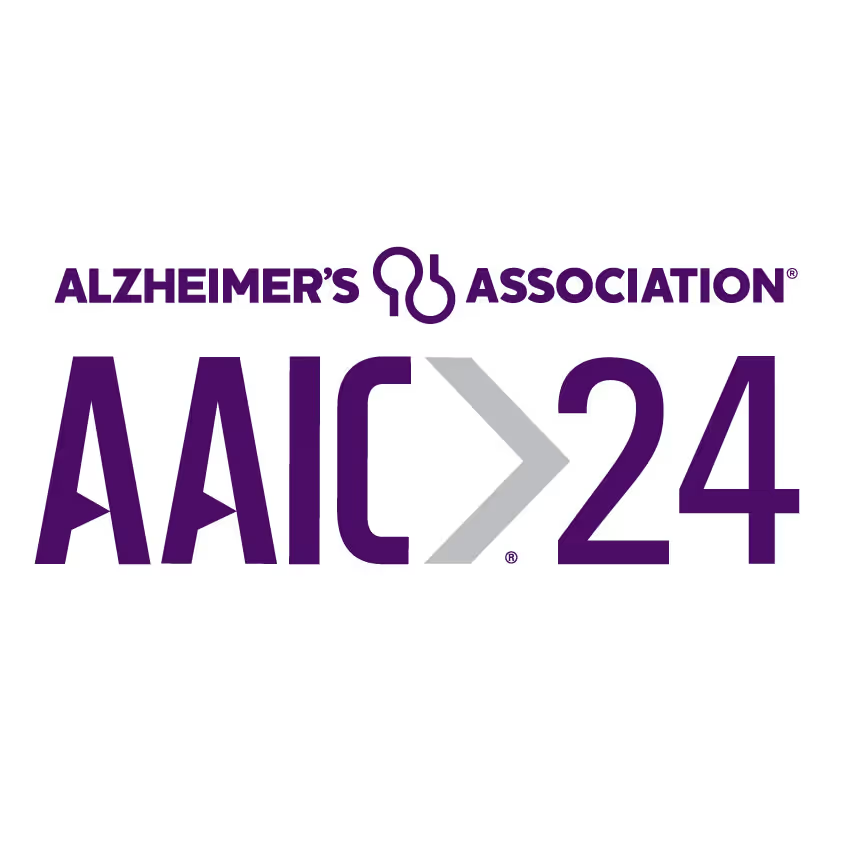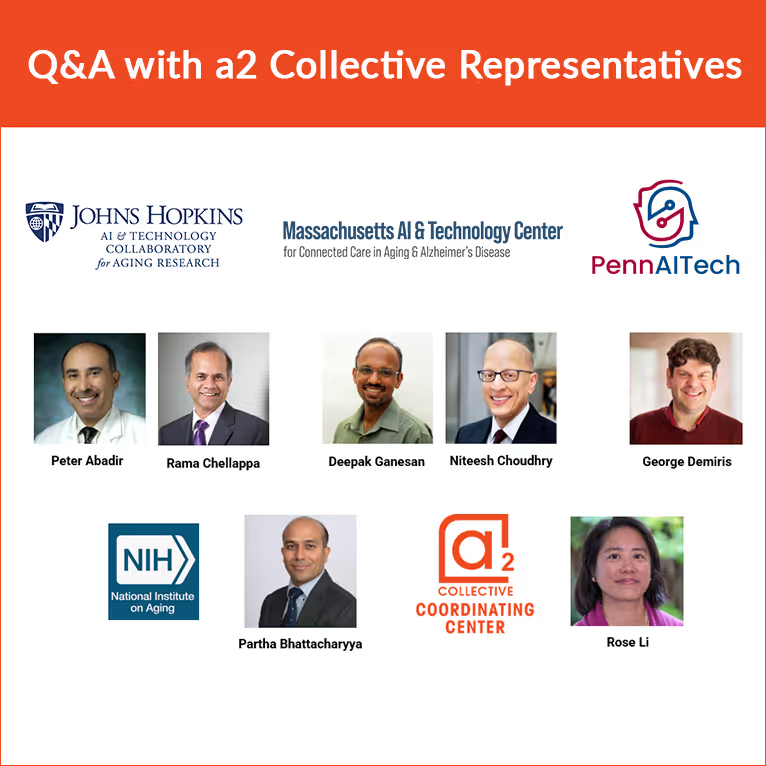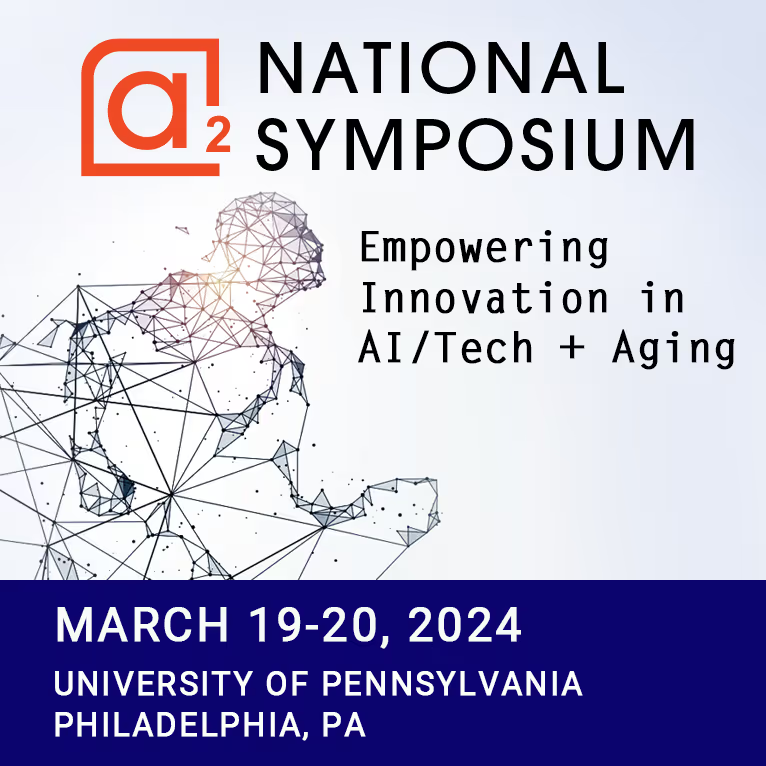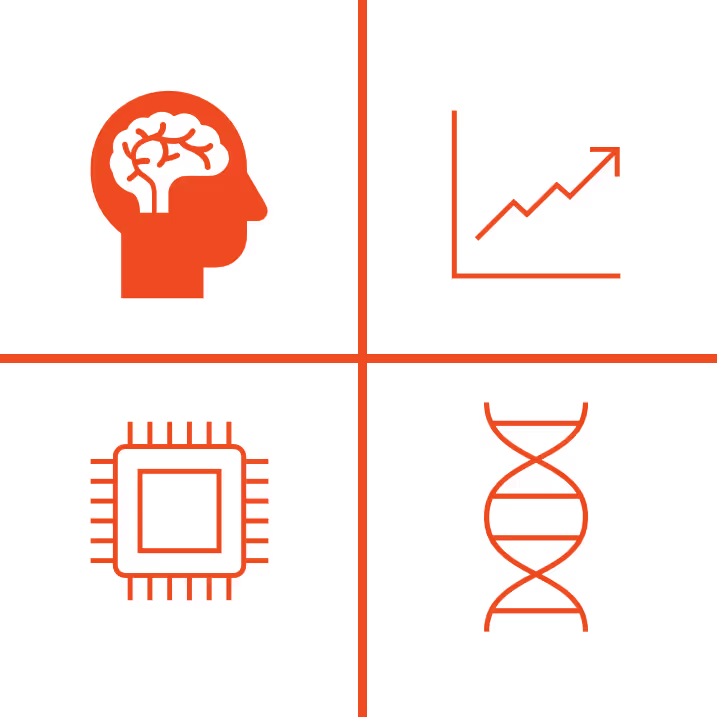The Technology and Dementia Professional Interest Area (PIA) of the International Society to Advance Alzheimer’s Research and Treatment hosted a preconference to the Alzheimer’s Association International Conference 2024 on Saturday, July 27, to explore technologies supporting innovative study design in research and as interventions for persons living with dementia and their care partners. As part of this preconference, the a2 Collective collaborated with Allison Lindauer, PhD, NP (Oregon Health & Science University and Chair, Technology and Dementia PIA), and Ozama Ismail, PhD (Alzheimer’s Association), in organizing Session 2: Empowering Innovation in AI/Tech and Aging to highlight the work supported by the AI and Technology Collaboratories (AITC) for Aging Research program funded by the National Institute on Aging, part of the U.S. National Institutes of Health.

From left: Randall Williams, MD, Jennifer Myers, PhD, Quincy Samus, PhD,
Gary Weissman, MD, MSHP, Archna Bhatia, PhD, Sudeshna Das, PhD,
Andrew Taylor, MD, MHS, George Demiris, PhD, Li Shen, PhD.
In the first session of the preconference, Jeffrey Kaye, MD (Oregon Health & Science University), reflected on the foundation for technological evolution in dementia care, and the recognition that technology use in Alzheimer’s disease and related dementias addresses multiple areas of need. Dr. Kaye specifically highlighted (1) prediction, (2) diagnosis/assessment, and (3) treatment/management.
In its earliest incarnations, PREDICTION was based on limited demographic features, then incorporated genetics data. Today, prediction capitalizes increasingly on “real-world” data (e.g., from electronic health records, environmental sensing). Dr. Kaye also noted that the heterogeneity of indoor conditions experienced by individuals can increasingly be measured (e.g., light, noise, temperature, humidity, CO2, PM2.5, VOC) and inform analyses of social determinants of health.
DIAGNOSIS/ASSESSMENT relies on multimodal assessments. Examples associated with diagnosis or assessment of cognitive functioning include computer use over time (including how a person uses a mouse and touch screen), medication-taking behaviors, driving, mobility (e.g., gait speed variability), social interactions (e.g., conversational analysis of audio recordings, temporal and proximity analysis of companion interactions), and sleep.
TREATMENT/MANAGEMENT includes online remote support or interventions with greater reliance on objective measures (e.g., time out of bed, number of awakenings, time in bathroom, time spent outside); monitoring treatment efficacy (e.g., reduced agitation and more hours spent in bed overnight); robots, including as companion pets; and environmental interventions (e.g., tunable light to help train sleep).
With the proliferation of digital data associated with so much innovation, particularly from home settings, data considerations become paramount, including data quality, validity, provenance, ownership, privacy, sharing, and analysis. Technology development is characterized by increasing ambiency (beacons, radar), increasing power (or seamless charging), integration for a more holistic approach, and scalability or “deployability.” Dr. Kaye also noted that understanding user experience—what people want and need—never goes out of style.
Against this highly relevant backdrop, George Demiris, PhD, co-principal investigator of PennAITech, introduced the audience to the AITC program by providing a brief overview of research areas of emphases, and announcing that the third cohort of funded pilots has now been awarded and the next pilot competition deadline will be Jan. 15, 2025. Study directors of six awarded pilot projects shared their research that addressed improvements in everyday function via wellness coaching and cognitive impairment detection (Randall Williams, MD) and word retrieval support (Archna Bhatia, PhD); reaching underserved people and reducing disparities by mitigating bias in decision support (Li Shen, PhD) and through music intervention (Jennifer Myers, PhD); and disease/symptom screening and prediction in emergency departments (Andrew Taylor, MD, MHS) and primary care settings (Gary Weissman, MD, MSHP).
Audience questions highlighted the challenges of implementing new technology interventions in developing countries without common access to smartphones and tablets, as well as underscored the importance of integrating broader perspectives from additional stakeholders beyond patients, such as caregivers and providers.




